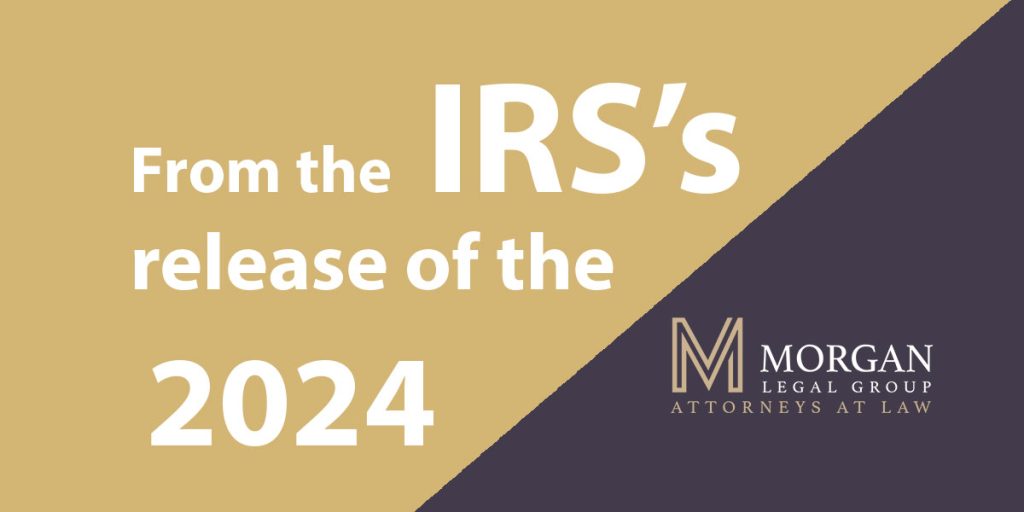Estate Planning
Internal Revenue Service Releases 2024 Lifetime Exemption and Annual Gift Exclusion Amounts
On November 9, 2023, the IRS issued Revenue Procedure 2023-34, providing the annual inflation adjustments for tax provisions to be used by individual taxpayers on their 2024 returns. The adjustments include the following:
- For 2024, the estate, gift, and generation-skipping transfer tax exemption amount is $13,610,000, an increase from $12,920,000 for transfers in 2023.
- The annual exclusion for gifts is $18,000 for calendar year 2024, an increase from $17,000 for 2023.
- For 2024, the first $185,000 of gifts to a spouse who is not a citizen of the United States (other than gifts of future interests in property) are not included in the total amount of taxable gifts made during that year, an increase from $175,000 for 2023.
Takeaways: These projections reflect the continued high rate of inflation. The increase in the basic exclusion amount means that an individual will be able to transfer $690,000 ($1,380,000 for married couples) more free of transfer tax liability in 2024 than they could in 2023. The $18,000 annual exclusion amount for gifts represents the third increase in three years: the exclusion amount for gifts was increased to $17,000 in 2023 from $16,000 in 2022 after remaining at $15,000 from 2018 through 2021. Estate planning attorneys should work with clients to determine if they should take advantage of the planning opportunities provided by these increases, especially in light of the sunset of the enlarged exemption amount at the end of 2025.
Massachusetts Doubles Its Estate Tax Exemption Amount
On October 4, 2023, Massachusetts Governor Maura Healey signed An Act to Improve the Commonwealth’s Competitiveness, Affordability, and Equity (the Act), which increases the state’s estate tax exemption amount to $2 million, effective retroactively for decedents dying on or after January 1, 2023 (§ 37). The estate tax generally applies to the taxable estates of decedents who are Massachusetts residents at the date of death and to the taxable estates of nonresident decedents who own real and tangible personal property located in Massachusetts at the date of death.
Takeaways: Because the new estate tax exemption amount is retroactive to January 1, 2023, personal representatives who filed estate tax returns for decedents who died earlier this year may seek refunds based on the new exemption amount.
California Adopts Uniform Directed Trust Act
On October 10, 2023, Governor Gavin Newsom signed the California Uniform Directed Trust Act, which establishes the duties and responsibilities of trust directors (sometimes called trust advisors or protectors), i.e., those other than a trustee who have a role in directing a trust’s administration, and the duties and responsibilities of the trustee who is subject to the powers of the trust director, i.e., the directed trustee.
Takeaways: The new law provides a regulatory framework for the use of trust directors alongside trustees in California.
Trust Exempt from Realty Transfer Tax After Retroactive Modification
On September 4, 2018, Bernard Ebersole and Jennifer Matlock, a married couple, created a trust (Trust). The Trust stated that assets transferred to the trust should be held “for our benefit while we are living.”
Takeaways: Revocable living trusts (RLTs) often contain gifting powers that can cause clients to miss opportunities to benefit from transfer tax exemptions, in jurisdictions where such exemptions exist when real property is transferred to their trust.





